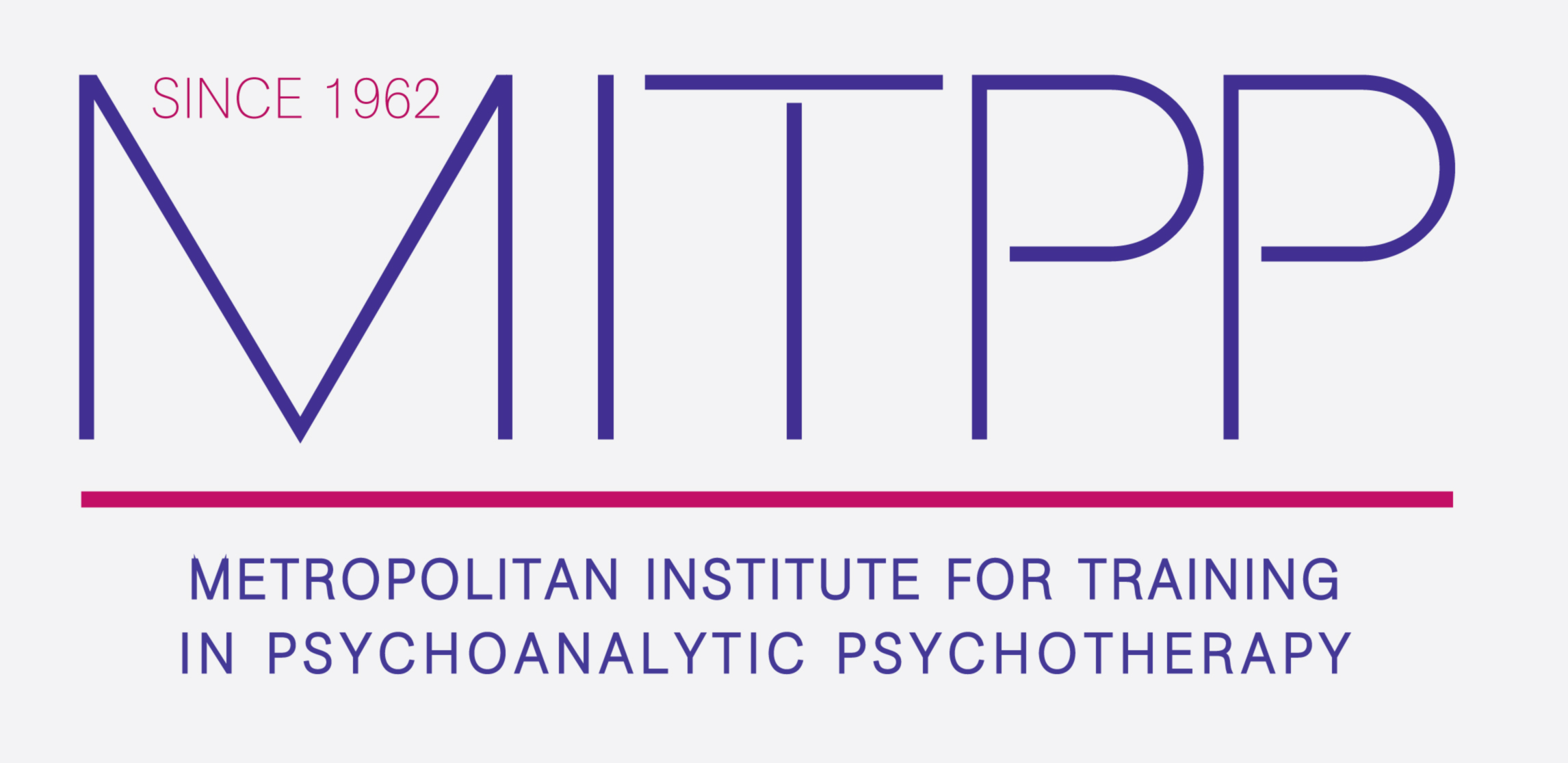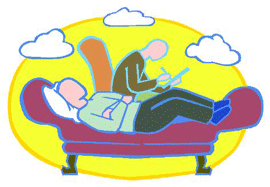EVENTS
MITPP is approved by the New York State Education Department as a provider of continuing education for LMSWs, LCSWs, LMHCs, LPs, LMFTs and Licensed Psychologists. Contact hours/CE credits are granted to participants who attend the full program and complete an evaluation. Partial credits cannot be offered. It is the responsibility of the participants seeking contact hours/CE credits to comply with these requirements.
All events are Eastern Standard Time (EST).
THE SILENT PATIENT AND THE USE OF SILENCE IN PSYCHOANALYTIC THERAPY
SUNDAY, MARCH 1, 2026
11:00 AM – 1:00 PM EST
PRESENTER: VERDA TUZER, MD, LP
Although psychoanalytic psychotherapy is grounded in dialogue, careful attention is focused on what unfolds beyond words. Silence is not simply the absence of speech but an integral form of communication that shapes the emotional field between patient and therapist. Tone, rhythm, pauses, bodily presence, and the atmosphere of the session all carry meaning. Silence may emerge as a moment of reflection, follow a therapist’s intervention, signal agreement or disagreement, or accompany tension and distress when experience feels difficult to articulate.
This workshop explores the silent patient and the use of silence in psychoanalytic therapy, examining silence as defense, connection, withdrawal, and communication of absence or unmet need. Drawing on classical and contemporary psychoanalytic perspectives, we will consider how silence can express internal conflict, transference, and preverbal experience, as well as how the therapist’s silence may evoke unconscious fantasies and countertransference. Through clinical illustrations, the presentation highlights how attending thoughtfully to silence can transform impasse into meaning, deepen therapeutic engagement, and allow what cannot yet be spoken to be felt, understood, and eventually symbolized. Attention will also be given to how different forms of silence evolve over the course of treatment and how they inform clinical decision-making.
Learning Objectives:
Participants will:
1) understand different forms and functions of silence in a psychotherapeutic setting.
2) become more aware of the emergence of silence between patient and therapist, and the role of the therapist in silence.
3) be able to evaluate the role of both the therapist and the patient’s silence in the therapeutic process.
PRESENTER: VERDA TUZER, MD, LP Certificate in Adult Psychoanalysis, Institute for Psychoanalytic Training and Research. Advanced Candidate, Child and Adolescent Psychoanalysis, Institute for Psychoanalytic Training and Research. Advanced Candidate at the Anni Bergman Parent-Infant Program. Faculty: Metropolitan Institute for Training in Psychoanalytic Psychotherapy, Adult and Child and Adolescent Programs. Supervisor: Institute for Psychoanalytic Training and Research, Adult Program. Associate Member: Institute for Psychoanalytic Training and Research. Member: International Psychoanalytical Association.
LOCATION: ONLINE THROUGH ZOOM
FEE: $60 or $40 for students (with proof of student status)
NO FEE FOR MCMH STAFF THERAPISTS
Registration deadline: FEBRUARY 27, 2026
Zoom instructions and meeting link will be emailed to participants prior to the workshop.
The New York State Education Department has approved this online workshop for 2 contact hours (CEUs) for LMSWs, LCSWs, LMHCs, LPs, LMFTs and Licensed Psychologists. A certificate will be emailed to those who sign in at the beginning of the session, stay until the end of the session, complete an emailed evaluation. The evaluation form will be emailed to you within a week of the event and usually much more quickly. Full session must be attended to be eligible for CEUs/Contact hours.
OPEN HOUSE & CLINICAL PRESENTATION
FOR THOSE CONSIDERING POSTGRADUATE TRAINING
THE CASE OF A NARCISSISTIC PATIENT: MORE COMPLICATED THAN AT FIRST GLANCE
SATURDAY, MARCH 14, 2026
2:00 PM – 3:30 PM EST
PRESENTER: FABIOLA HERNANDEZ, LMSW
A rich, 3 year-long treatment of a highly intelligent, charismatic and articulate 45 year old man, who sought services for depressive symptoms, illuminates the interplay of unmet early needs and religious and family dynamics. The patient’s defenses and the transference/countertransference matrix that developed led the therapist to conclude that the patient was narcissistically organized. The therapist will describe some narcissistic personality types and indicate which fits the patient’s narcissistic organization. Clinical vignettes will be offered to illustrate the course of treatment.
PRESENTER: FABIOLA HERNANDEZ, LMSW Certificate in Psychoanalytic Psychotherapy, Metropolitan Institute for Training in Psychoanalytic Psychotherapy, Adult Program. Member: Metropolitan Society of Psychoanalytic Psychotherapists; National Association of Social Workers.
LOCATION: ONLINE VIA ZOOM - Zoom instructions and meeting link will be emailed to participants prior to the event.
RSVP: There is no fee but you must reserve in advance.
Training opportunities, including flexible scheduling and financial options to fit individual needs, will be described following the presentation.
MITPP CANDIDATES ARE ELIGIBLE TO RECEIVE CONTACT HOURS FOR
CONTINUING EDUCATION IN MITPP COURSES.
Applications are currently being accepted for the Fall 2026 semester.
INTERGENERATIONAL TRAUMA IN CLINICAL PRACTICE:
INDIVIDUALS AND COUPLES
SATURDAY, MARCH 21, 2026
10:30 AM – 12:30 PM EST on Zoom
PRESENTERS: VIVIAN ESKIN, PH.D. and DEBRA GILL, LCSW
This seminar explores how trauma is transmitted across generations—not through direct narratives or biological mechanisms, but through silence, repetition, narcissistic identification and embodied emotional communication. Inherited trauma affects the internal object world and influences the formation of an internal couple that carries into adult partnerships. Unconscious ties to the suffering from previous generations impair psychic separateness and identity formation. According to Marianne Hirsch, second and third generation Holocaust survivors can unknowingly remain bound to post memory living inside traumas that precede and supersede their own existence.
Relying on case material and relevant theory, we will examine how unmetabolized trauma from previous generations becomes the psychic inheritance of the next generations.
In the treatment situation, we will consider the meaning of the analytic frame, as conceived by José Bleger, for its therapeutic provision of constancy. The analyst provides the steady backdrop, that holds unmetabolized trauma until the inevitable disruptions occur, revealing psychotic parts of the personality. These disruptions are essential when what has been hidden and silently carried becomes visible and available for analytic work. Therapeutic witnessing and the analyst's containing function are essential processes through which the therapist gradually metabolizes unprocessed psychic experience. Over time, analytic patients begin to recognize and consider the meaning of inherited trauma, allowing for an emergence of a third position—and in couple work, a couple state of mind, all representing a reflective thinking space where transformation becomes possible through mourning, symbolization, and the creation of new relational life.
Learning Objectives:
Participants will be able to:
1) identify multiple pathways of intergenerational trauma transmission, including biological, narrative, identificatory, and embodied modes, and recognize how silence, repetition, and projective identification function as carriers of inherited suffering in clinical presentation.
2) apply concepts of containment, metabolization, and the emergence of the third position to clinical work with individuals and couples carrying traumatic legacy, understanding how the therapist's capacity to process unmetabolized content creates space for symbolization and mourning.
3) utilize the analytic frame as a therapeutic instrument to provide constancy while remaining responsive to inevitable disruptions that reveal dissociated or psychotic aspects of personality organization shaped by intergenerational trauma.
VIVIAN ESKIN, Ph.D. Certificate in Psychoanalysis, New York Freudian Society, Graduate of NYFS/IPTAR Anni Bergman Parent-Infant Program. Qualifying Diploma in Couple Psychoanalytic Psychotherapy, Tavistock Relationships, London, UK. Faculty and Supervisor: The Metropolitan Institute for Training in Psychoanalytic Psychotherapy, Adult Program. Training and Supervisory Analyst: Contemporary Freudian Society. Member: NY Freudian Society, American Psychoanalytic Association, International Psychoanalytical Association, CIPS, NASW, IPTAR.
DEBRA GILL, LCSW Certificate in Psychoanalysis, Psychoanalytic Training Institute of the Contemporary Freudian Society. Certificate in Psychoanalytic Psychotherapy, Metropolitan Institute for Training in Psychoanalytic Psychotherapy. Faculty and Supervisor: Metropolitan Institute for Training in Psychoanalytic Psychotherapy, Adult Program. Faculty, Training and Supervising Analyst: Psychoanalytic Training Institute of the Contemporary Freudian Society. Fellow: International Psychoanalytical Association. Member: Confederation of Independent Psychoanalytic Societies; American Psychoanalytic Association.
LOCATION: ONLINE THROUGH ZOOM
FEE: $60 or $40 for students (with proof of student status)
NO FEE FOR MCMH STAFF THERAPISTS
Zoom instructions and meeting link will be emailed to participants prior to the workshop.
Registration deadline: March 19, 2026
The New York State Education Department has approved this online workshop for 2 contact hours (CEUs) for LMSWs, LCSWs, LMHCs, LPs, LMFTs and Licensed Psychologists. A certificate will be emailed to those who sign in at the beginning of the session, stay until the end of the session, complete an emailed evaluation. The evaluation form will be emailed to you within a week of the event and usually much more quickly. Full session must be attended to be eligible for CEUs/Contact hours.
PAYMENT OPTIONS
Zelle – Debit Card or Bank Account
You may use Zelle through your bank or download the Zelle app and follow the instructions. Zelle will not accept credit cards. Payment should be made to: info@mitpp.org.Chase QuickPay with Zelle – Access through the Chase app.
PayPal - Please add $4.00 to your total to cover PayPal fees for payments up to $75. For payments above $75, contact MITPP for fee information. PayPal payments should be made to info@mitpp.org.
If you are unable to pay electronically and would like to send a check, please contact MITPP.For questions about payment, please email info@mitpp.org
REGISTRATION FORM
PAYMENT OPTIONS
Zelle – Debit Card or Bank Account
You may use Zelle through your bank or download the Zelle app and follow the instructions. Zelle will not accept credit cards. Payment should be made to: info@mitpp.org.Chase QuickPay with Zelle – Access through the Chase app.
PayPal - Please add $5.00 to your total to cover PayPal fees for payments up to $75. For payments above $75, contact MITPP for fee information. PayPal payments should be made to info@mitpp.org.
If you are unable to pay electronically and would like to send a check, please contact MITPP.For questions about payment, please email info@mitpp.org
Refund Policy
If you find you are unable to attend an event for any reason, you must notify MITPP by email at least 48 hours prior to the time the course/workshop begins in order to receive a full refund. No refunds will be issued after that time.












